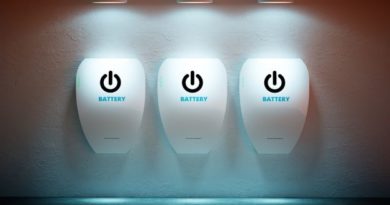Google Signs Wind PPAs in Finland to Power its Data Center

Last year, Google announced that it had reached its 100 percent renewable energy purchasing goal. And now the internet giant has announced that it has signed agreements to purchase additional renewable energy from three new wind farms in Finland, totaling 190 MW in capacity.
The company matches 100 percent of its electricity consumption from its global operations, including both its data centers and offices with renewable energy purchased in the markets where they operate. The power purchase agreements (PPAs), signed with three of Europe’s leading renewable energy developers in CPC, Neoen, and WPD, is the first renewable investment made by Google in Finland. It is also its first renewable power purchase in Europe from projects that will not receive any government subsidy, hence procured at higher competitive prices.
“In a growing number of locations, the cost of new renewable energy is competitive with the cost of power from the grid,” Marc Oman, Google’s head of EU energy said in a public statement. That goes well with our own belief that business will usually act to save the planet not because it is good for everyone, but because it is good for their business. Apparently, Google included.
All three wind projects will supply energy to the same grid which powers Google’s data center in Hamina, Finland. One of the reasons the data centre had been set up in Finland itself was the colder temperatures year round there, which would cut down the need to cool down the data centres and save energy.
With this agreement the company has now signed 14 purchase agreements in Europe totalling nearly 900 MW of wind and solar capacity. “We’re excited to be playing a role in accelerating Europe’s clean energy transition. As the world’s largest corporate buyer of renewable energy, we’ll continue to do our part to scale renewables in Europe—through innovative transactions and policy engagement,” the company released in a statement.
Wind has become competitive with conventional power in many countries and large companies are managing volatile energy expenses by locking in electricity costs at a fixed price. According to the International Renewable Energy Agency in 2017, the number of new corporate PPAs, primarily wind and solar, reached a record with more than 5 gigawatt contracted, up almost a third from the 2016 level.
“We also want to help all companies secure a clear and easy path to purchasing renewable energy in Europe, and are working with other companies and nonprofit organizations to make that happen.”




